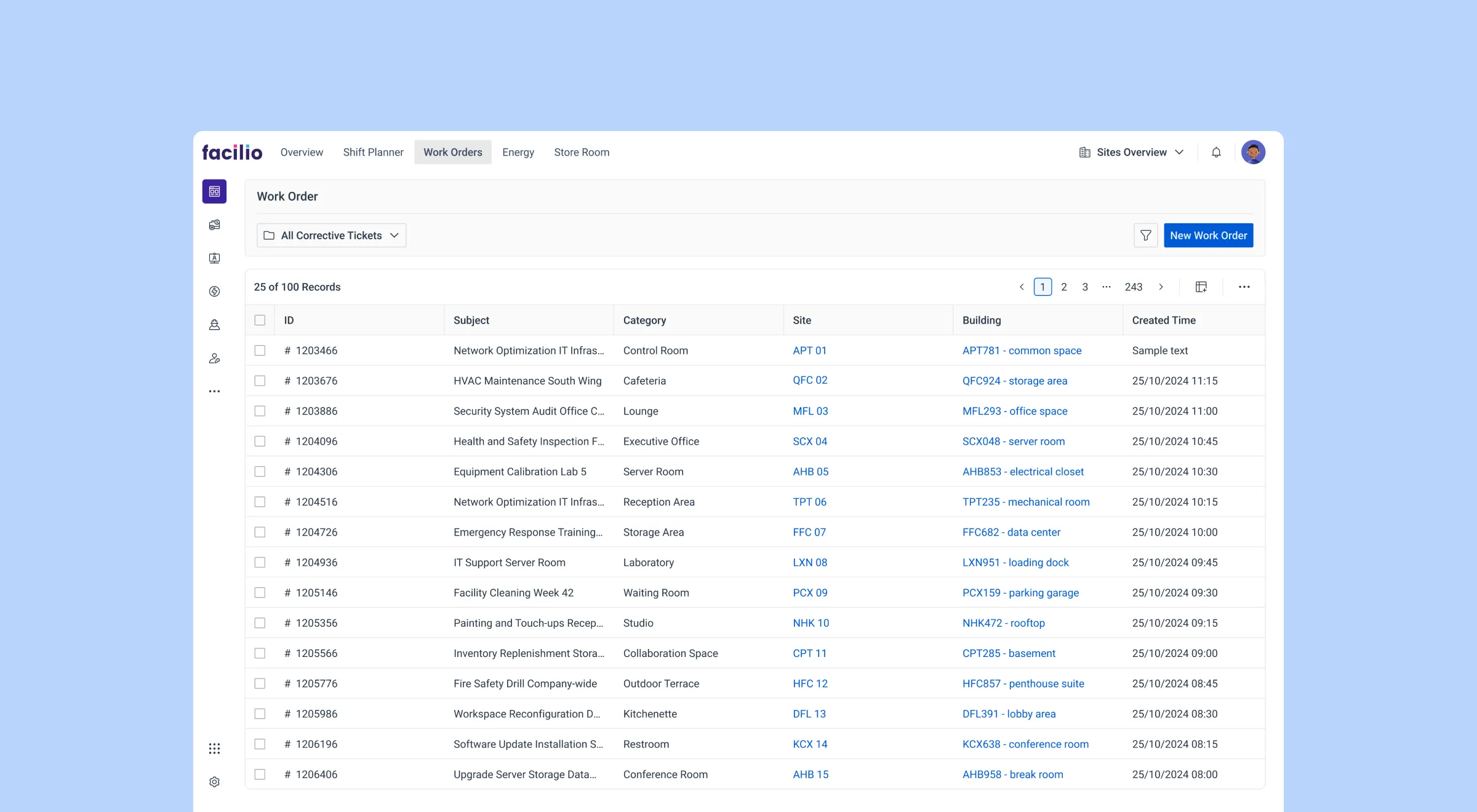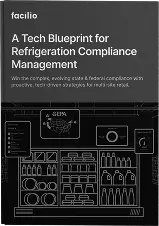 All case studies
All case studies
UAE’s Leading FM Provider Berkeley Unlocks 2× Faster Client Onboarding with Connected CMMS

- Automate monthly client reports across energy, SLA, and service metrics
- Enable client transparency and SLA tracking
- Streamline subcontractor and labor productivity management
- Accelerate onboarding of new clients and projects
About Berkeley UAE
Berkeley UAE is a leading facilities management service provider operating across more than 100 sites in the region. The company manages a diverse client portfolio, delivering maintenance, energy management, and compliance services. With an expanding client base and subcontractor-heavy delivery model, Berkeley needed a flexible CaFM system capable of handling varied SLAs, real-time reporting, and integrated compliance management.
Challenges:
Before Facilio, Berkeley’s operations were heavily dependent on paper-based processes, excel spreadsheets, and siloed point tools that offered little flexibility or scalability. Energy reporting for clients was entirely manual, with meter readings logged on paper and later converted into charts or reports by the admin team. Subcontractor service reports were stored physically, and SLA enforcement couldn’t be adapted to client-specific requirements. Monthly maintenance reports (MMRs) required up to a week of admin effort, slowing down internal decisions and delaying communication with clients.
These fragmented workflows resulted in reactive reporting cycles, limited real-time visibility for clients, and growing constraints in delivering a consistent client experience. More critically, Berkeley was in need to standardize service delivery, meet varying SLA expectations, and follow through on compliance actions—all while scaling operations across a large multi-site, subcontractor-heavy portfolio. As Berkeley scaled to manage more sites and clients, the absence of a unified, digitized system increasingly impacted their ability to deliver consistent service, meet SLAs, and build client trust at scale.
Key challenges:
- Manual, paper-based energy reporting across sites
- Energy reporting for clients was entirely manual.
- Subcontractor management lacked visibility and automation
- Clients had no real-time access to data - reports were manually compiled and shared.
- SLA policies varied by client and couldn’t be digitized in legacy tools
- Monthly reports took one week of manual effort per client
"Facilio's platform-led approach to operations & maintenance aligns perfectly with our needs. Its scalable infrastructure, robust automation and real-time KPI reporting capabilities stand out - it not just improves our operational capabilities but also helps boost growth and profitability across verticals. By leveraging this innovative technology, we can position ourselves at the forefront of technology-driven integrated facilities management, delivering exceptional experiences to our clients across diverse industries."
Facilio’s Solution
Facilio was deployed as Berkeley’s central CAFM platform to digitize core FM workflows and unify operations across 113+ sites. Modules rolled out included asset and work order management, inspections, inventory, labor tracking, work permits, and client portals—all configured to support client-specific SLAs and vendor workflows.
A major milestone in this transformation was the implementation of self-serve client portals, offering real-time visibility into work orders, energy usage, and reports. This reduced back-and-forth communication and cut report generation from a week to a one-click export—streamlining admin effort and enhancing client experience.
Solution Highlights
1. Self‑Serve Client Portals for Real‑Time Visibility
 Client portal dasboard
Client portal dasboard Berkeley introduced dedicated client portals that offer secure, site-specific access to real-time dashboards and reports. Clients can independently track work orders, monitor energy performance, and view SLA metrics—eliminating delays caused by manual report sharing. This self-serve model reduces admin workload, streamlines communication, and enhances transparency. By putting operational data directly in the hands of clients, Berkeley has strengthened trust, elevated service delivery standards, and created a more responsive, professional client experience.
2. Shift-Based Labor Tracking with Productivity Insights
Facilio enables Berkeley to digitize labor tracking across 113+ sites using shift schedules and work order execution data. Supervisors log actual hours per laborer, even for subcontractors without logins, allowing real-time productivity monitoring without operational friction. Dashboards visualize daily execution trends, highlight idle time, and support smarter staffing decisions. This structured visibility has improved labor cost control, strengthened SLA compliance, and helped Berkeley demonstrate service value to clients more transparently. The result is improved labour cost control, stronger SLA compliance, and the ability to demonstrate service delivery value to clients with transparency.
3. Auto-Triggered Work Orders from Inspection Reports
 Auto-Triggered Work Orders
Auto-Triggered Work Orders Inspections no longer stop at documentation—they now initiate action. With Facilio, Berkeley has implemented dynamic, mobile-enabled checklists that automatically generate deviation work orders when inspection responses fall below threshold scores. These work orders are instantly routed to the appropriate technician or inspector, closing the loop between issue detection and resolution. Each event— from failed checklist item to task completion—is tracked with a full audit trail, including attachments and timestamps. This eliminates manual QA backlogs, accelerates corrective actions, and ensures that compliance workflows are both traceable and execution ready.
4. Energy Dashboards, Meter Benchmarking & Audit Triggers
With no BMS in place, Berkeley needed a flexible way to track and report energy usage across client sites. Using Facilio, technicians now log daily meter readings via work orders or checklists, feeding real-time dashboards accessible to internal teams and clients through site-specific portals. Historical meter data was bulk uploaded during rollout to enable trend analysis from day one. A custom benchmarking module flags anomalies and auto-triggers audit work orders when thresholds are exceeded, while forecasting tools estimate energy costs before month-end. This end-to-end workflow has transformed energy reporting from a manual task into a proactive, insight-driven process that improves cost control and strengthens client engagement.
5. Centralized Inventory Visibility Across 52 Storerooms
The inventory module helps the team to track over 1,000 active item types across 52 storerooms—ensuring real-time visibility into available stock, usage history, and replenishment needs. Inventory is tightly integrated with work orders, allowing parts to be issued and recorded against specific tasks. This linkage helps Berkeley prevent overstocking, reduce wastage, and monitor item-level consumption trends by site. By digitizing inventory across clients and locations, Berkeley has improved material planning, ensured faster task resolution, and brought financial accountability to their spare parts operations.
Impact
- Onboarding new clients cut from 30+ days → 15 days
- Reporting time reduced from 1 week/admin → instant export
- SLA adherence tracked in real time across 113+ sites.
- Enhanced real‑time visibility and client experience through dedicated self‑serve portals
- Improved energy cost forecasting to better cost management and proactive decision-making.
Stay audit-ready with centralized refrigerant tracking and reporting
Book a demo
